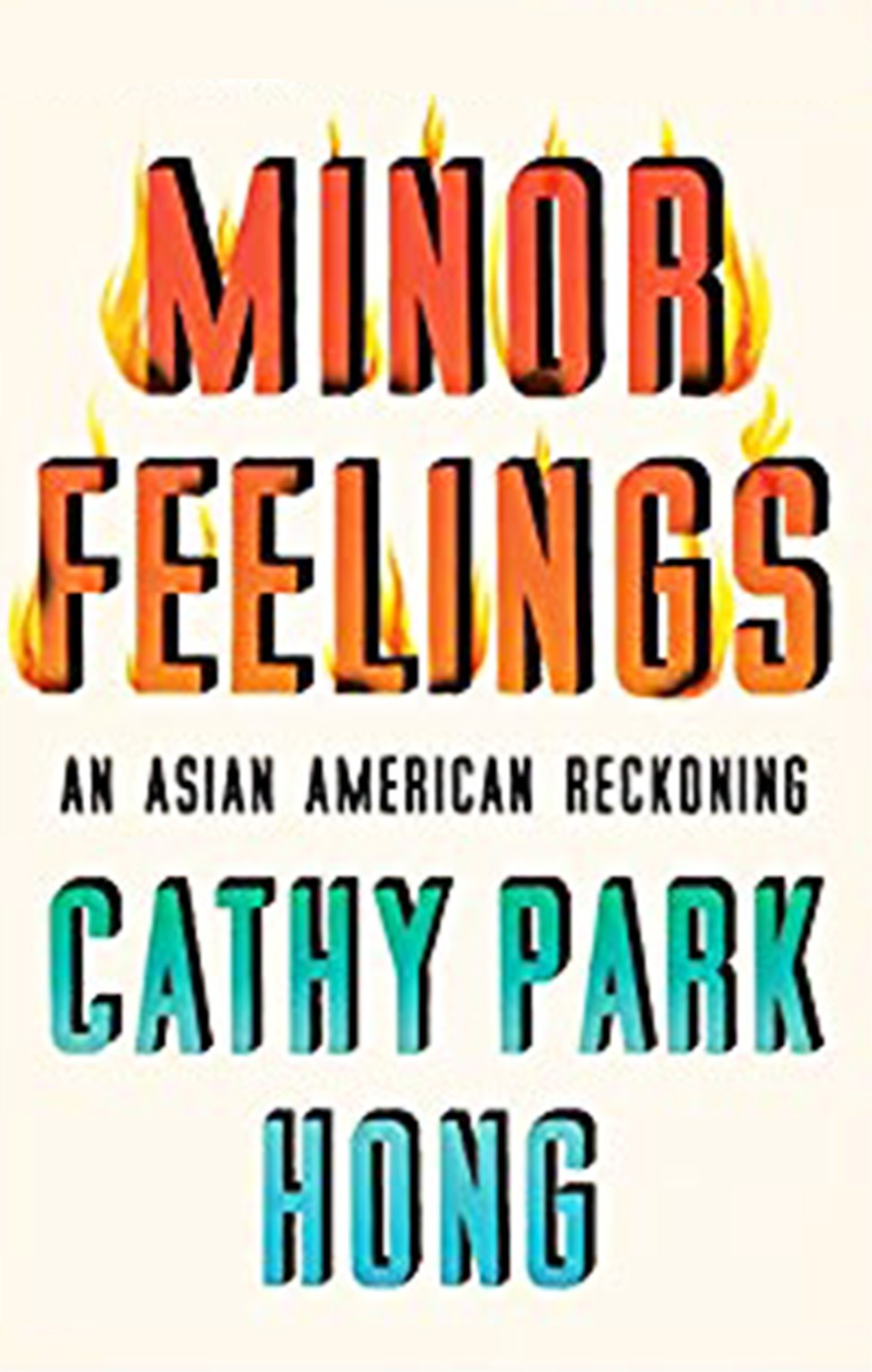
In Minor Feelings, Cathy Park Hong asks whether Asian-Americans will become ‘stooges to a white ideology’
- The poet and author explores ‘racialised’ emotions of shame, doubt and gloominess in her latest book
- ‘Not white enough nor black enough, distrusted by African-Americans, ignored by whites’

Minor Feelings: An Asian-American Reckoning
by Cathy Park Hong
One World
4.5/5 stars
Just before the publication of her fourth and latest book, Minor Feelings: An Asian-American Reckoning, Cathy Park Hong read from it at a small gallery in Brooklyn, New York. Later, the gallery manager, “a white man with a beard and tattoos”, ambled up to her and announced he was taking a racial awareness seminar, a requirement for his other job.
His instructor, the manager said, told him how minorities in the United States “can’t be racist against each other”. Hong, who is a professor in Rutgers University – Newark’s master of fine arts (MFA) poetry programme as well as poetry editor of The New Republic magazine, responded that he was either talking nonsense or was badly misinformed. To which the manager quipped: “He also said Asians are next in line to be white. What do you think about that?”
When she hears that phrase, Hong writes in her book, she replaces the word “white” with “disappear”. That’s because Asians are popularly perceived to be so accomplished and law-abiding that “we will disappear into this country’s amnesiac fog”, writes Hong: “We will not be the power but become absorbed by power, not share the power of whites but be stooges to a white ideology that exploited our ancestors.”

Minor Feelings is poet Hong’s first work of prose. In it, she acknowledges a major debt, both for inspiration and for the book’s theme, to Ugly Feelings, a celebrated 2005 work by the American cultural theorist Sianne Ngai.
In her book, Ngai explores the aesthetics and politics of what she calls “negative emotions” – non-cathartic feelings such as envy and irritation (as opposed to anger and fear) and an amalgam of shock and boredom that she calls “stumplimity” – which are “the psychic fuel on which capitalist society runs” and which people typically don’t like to examine.
“Minor feelings are not often featured in contemporary American literature because these emotions do not conform to the archetypal narrative that highlights survival and self-determination,” Hong writes.
“Unlike the organising principles of a bildungsroman [a novel based on a character’s formative years or spiritual development], minor feelings are not generated from major change but from lack of change, in particular, structural, racial and economic change.”
Moreover, writes Hong, minor feelings occur “when American optimism is enforced upon you, which contradicts your own racialised reality, thereby creating a static of cognitive dissonance. You are told, ‘Things are so much better,’ while you think, ‘Things are the same.’ You are told, ‘Asian-Americans are so successful,’ while you feel like a failure”.
Racial self-hatred is seeing yourself the way the whites see you, which turns you into your own worst enemy
Hong quotes a 2017 study that revealed “the ideology of America as a fair meritocracy led to more self-doubt and behavioural problems among low-income black and brown sixth-graders because, as one teacher said, ‘they blame themselves for problems they can’t control’.”
Asian-Americans, Hong argues, tend to experience a “racialised range of emotions” – shameful, doubting and gloomy feelings that arise when their experiences are regularly ignored or dismissed by a majority that refuses to recognise not just their reality but, often, their very existence.
“Minor feelings are also the emotions we are accused of having when we decide to be difficult – when we decide to be honest,” writes Hong. “When minor feelings are finally externalised, they are interpreted as hostile, ungrateful, jealous, depressing, and belligerent, affects ascribed to racialised behaviour that whites consider out of line.”
The condition is distinctly Asian, not least because, as Hong puts it, “some of us are economically doing better than any other minority group but we barely exist anywhere in the public eye”. She adds wryly: “Although it’s now slowly changing, we have been mostly nonexistent in politics, entertainment, and the media, and barely represented in the arts.”
In the popular imagination, Asian-Americans inhabit “a vague purgatorial status: not white enough nor black enough, distrusted by African-Americans, ignored by whites, unless we’re being used by whites to keep the black man down”, Hong writes.
“We are the carpenter ants of the service industry, the apparatchiks of the corporate world […] math-crunching middle managers who keep the corporate wheels greased but who never get promoted since we don’t have the right ‘face’ for leadership. We have a content problem. They think we have no inner resources.”
Because racial discrimination can easily become a self-fulfilling prophecy, Hong suggests, Asian-Americans end up hating themselves. It can be a remarkably destructive phenomenon.
“Racial self-hatred is seeing yourself the way the whites see you, which turns you into your own worst enemy,” she explains. “Your only defence is to be hard on yourself, which becomes compulsive, and therefore a comfort, to peck yourself to death.”
To grow up Asian in America is to witness the humiliation of authority figures like your parents and to learn not to depend on them: they cannot protect you
Minor Feelings is a fearless, sharply intelligent and intellectually provocative work that combines personal anecdotes and astute cultural insights with scholarly knowledge to highlight the destructive effects of racial prejudice.
Part memoir and part cultural criticism steeped in radical history, the book consists of seven essays that range from a probing analysis of racial consciousness in America to an unapologetic revolutionary call-out aimed at altering the nation’s racist status quo.
Part of the challenge involves changing American literature – completely. “Overhaul the tired ethnic narratives that have automated our identities, that have made our lives palatable to a white audience but removed them from our own lived realities – and stop spelling ourselves out in the alphabet given to us,” Hong urges.
For two decades,the stories of admired Indian-American author Jhumpa Lahiri were “the template of ethnic fiction that supports the fantasy of Asian-American immigrants as compliant strivers”, writes Hong.
“Using just enough comforting ethnic props to satisfy the white reader’s taste for cultural difference, Lahiri writes in a flat, restrained prose, where her characters never think or feel but just do.”
And that is exactly how the publishing industry, buffeted by “the MFA orthodoxy of show, don’t tell”, prefers it, writes Hong.
“Because the character’s inner thoughts are evacuated” – both major and minor feelings pushed aside – “the reader can get behind the cockpit of the character’s consciousness and cinematically see what the character sees without being disturbed by incessant editorialising”.
A graduate of the prestigious Iowa Writers’ Workshop, Hong is known for canny acts of literary sabotage in her critically acclaimed poetry. Her second book, Dance Dance Revolution (2007), is a collection of linguistically inventive and politically resonant poems that some scholars consider unique.
Published a year or so after Ngai’s Ugly Feelings, the work revolves around the English language as it is mashed up and spoken in our globalised world, constantly morphing through cultures and geographies while adopting new words, sounds and speakers.
Relying partly on her own experiences as the child of immigrants who went to the US from Korea in the 1970s, Hong’s poems explore the influence of migration on language, reimagining its effects on ethnic identities and psychological displacement.
Although born in the US, the author’s first language was Korean. Hong grew up primarily in Los Angeles’ Koreatown and it wasn’t until she went to public school, at around seven years old, that she began speaking English.
For as long as she can remember, writes Hong, she has struggled to define her existence. “Most Americans know nothing about Asian-Americans,” she writes. “They think Chinese is synecdoche for Asians the way Kleenex is for tissues. They don’t understand that we’re this tenuous alliance of many nationalities.”
One of the ironies of racism in America is that “children are treated like adults and adults are treated like children”, writes Hong. No shame, she wagers, could possibly be deeper than watching white adults mock one’s parents or behave condescendingly towards them.
That happened with such regular frequency to Hong’s own parents that whenever her mother encountered a white adult, the author braced to mediate or pull her away.
“To grow up Asian in America is to witness the humiliation of authority figures like your parents and to learn not to depend on them: they cannot protect you,” she writes.
In fact, she adds, the indignities Asians suffer are vastly under-reported. “We have been cowed by the lie that we have it good. We keep our heads down and work hard, believing that our diligence will reward us with our dignity, but our diligence will only make us disappear.”